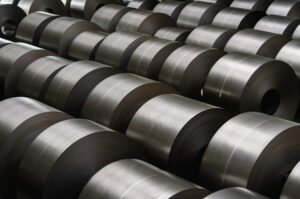
According to the National Scientific Center “Institute of Agrarian Economics” (IAE), citing data from the State Customs Service, Ukraine increased its imports of agricultural products by 13% compared to 2024, reaching $9.12 billion in 2025.
According to the research institute, EU member states retained their position as the main supplier and provided 53.9% of domestic agri-food imports worth $4.91 billion.
According to the institution, EU member states retained their position as the main supplier for the seventh consecutive year and provided 53.9% of domestic agri-food imports in 2025, worth $4.91 billion, with the value of supplies from the EU increasing by 15% compared to 2024.
According to the IEA, imports from other regions were much lower. Food supplies from Asian countries amounted to $1.635 billion (17.9%), Latin America – $693 million (7.6%), and Africa – $489 million (5.4%). All of them also increased sales of agricultural products for the needs of the Ukrainian domestic market last year.
Since 2017, Poland has held the top spot in the ranking of major suppliers of agricultural products to Ukraine, selling $1.15 billion worth of agricultural goods in 2025, 24% more than in 2024. The top ten exporters also included Germany ($692 million), Turkey ($654 million), Italy ($575 million), the Netherlands ($417 million), Norway ($338 million), France ($317 million), Spain ($314 million), China ($264 million), and the United States ($235 million). In total, these ten countries accounted for 54% of all imports.
In the commodity structure of purchases, 70% of the value was made up of fruits, berries, and nuts ($1 billion), fish and seafood ($999 million), beverages ($870 million), cocoa products ($640 million), food products ($575 million), tobacco products ($493 million), feed ($476 million), coffee and tea ($471 million), vegetables ($467 million), and oilseeds ($418 million).
“Food imports to Ukraine in 2025 reached their highest level in monetary terms since the country gained independence, growing for the third consecutive year amid a full-scale invasion of our state by the Russian Federation. Against the backdrop of a general trend of rising food prices, especially given the significant risks for specialized businesses in Ukraine, the cost of foreign purchases in 2026 is likely to remain high,” concluded Bogdan Dukhnytskyi, a leading researcher at the IAE.

According to the results of 2025, Ukraine imported Polish agri-food products worth EUR 1.2 billion and entered the list of key destinations for Polish exports outside the European Union, reported the Polish online publication agronews.com.pl.
According to the publication, Polish food exports to third countries grew by 3% last year, reaching EUR 14.5 billion, which accounted for 25% of total sales. The main consumers in this segment, apart from Ukraine, were the United Kingdom with EUR 4.4 billion and the United States with EUR 838 million. Meat (EUR 1.6 billion), dairy products (EUR 1.1 billion), and chocolate products (EUR 1 billion) were in the highest demand in markets outside the EU.
According to Polish analysts, the strengthening of the zloty exchange rate, which slightly reduced the price competitiveness of Polish goods, was a restraining factor for further expansion.
At the same time, the European Union remains Poland’s key trading partner, accounting for 75% of all shipments. Exports to the bloc grew by 10% to EUR43.9 billion. Germany was traditionally the main buyer, with EUR14.8 billion. The commodity structure of European supplies was dominated by poultry meat (EUR4.2 billion, +26%), beef (EUR2.7 billion, +37%), and confectionery.
Poland’s total agri-food exports in 2025 set a historic record and reached EUR58.4 billion, allowing the country to maintain a positive trade balance of EUR19.8 billion.

US President Donald Trump announced an increase in previously imposed universal import duties from 10% to 15% on goods supplied to the United States from all countries of the world.
The head of state made the announcement during a speech on trade policy and the protection of national industry. According to him, the decision is aimed at reducing the trade deficit, stimulating domestic production, and bringing jobs back to the American economy.
As Trump noted, the tariff increase will be part of a broader strategy of economic protectionism, which includes revising the terms of international trade and strengthening support for American manufacturers. The administration expects that the new measures will increase the competitiveness of domestically produced goods.
Economists warn that the increase in duties could lead to higher prices for imported goods in the US, as well as retaliatory measures from trading partners. Analysts do not rule out increased tension in world trade and additional pressure on global supply chains.
The new tariff rates are expected to come into effect after the necessary administrative procedures have been completed. Business representatives have already expressed concern about the possible increase in the cost of raw materials and components used by American companies.
Earlier, the US administration introduced a base import duty rate of 10%, explaining this by the need to protect the national economy and reduce dependence on foreign supplies.

Ukrainian cheese makers continue to lose market share due to competition from imported products from the EU, despite the trend towards a reduction in external purchases, according to the industry analytical agency Infagro.
According to the report, producers are asking the state for support, in particular through the expansion of cashback programs for domestic cheeses and a review of the tax burden. However, experts assess the chances of significant changes in tax policy or the introduction of import barriers as low.
Analysts consider a more effective step to be the regulation of relations with retail chains to reduce significant retail markups that affect the final cost of products.
According to the agency, cheese imports are currently showing a downward trend in both monthly and annual terms, which is associated with rising prices in Europe and currency fluctuations. It is expected that the volume of foreign purchases will continue to decline.
“Despite the difficult market conditions, Ukrainian producers are in no hurry to lower their base prices. They are probably afraid that retail chains will not respond adequately to lower prices or that it will be difficult to return to previous price levels in the future. At the same time, buyers can already count on significant discounts when purchasing large quantities of products,” Infagro concluded.

In January this year, Ukraine reduced imports of coke and semi-coke in physical terms by 25.7% compared to the same period last year, to 68,696 from 92,501 thousand tons.
According to statistics released by the State Customs Service (SCS) on Tuesday, 57,848 tons of coke were imported in December 2025.
Coke imports in monetary terms fell by 21% in January 2026 to $23.620 million. Coke was imported from Poland (100% of supplies in monetary terms).
The country did not export coke last month.
As reported, in 2025, Ukraine increased imports of coke and semi-coke in physical terms by 5.9% compared to the previous year, to 700,650 thousand tons, and increased revenues by 1.4%, to $238.656 million. Coke was mainly imported from Poland (93.37% of supplies in monetary terms), Indonesia (4.01%), and the Czech Republic (2.59%).
In 2025, Ukraine exported three tons of coke worth $2,000 to Albania.
It was also reported that in January 2025, Metinvest suspended the operation of the Pokrovsk Coal Group due to changes in the situation on the front line, electricity shortages, and the deterioration of the security situation.
In 2024, Ukraine increased its imports of coke and semi-coke in physical terms by 2.01 times compared to 2023, to 661,487 thousand tons, importing it mainly from Poland (84.76% of supplies in monetary terms), Colombia (7.74%), and Hungary (2.69%). In monetary terms, imports increased by 81.9% to $235.475 million.
In 2024, the country exported 1,601 thousand tons of 84.76% coke worth $368 thousand to Moldova (99.18%) and Latvia (0.82%), while in January, March, October, and November 2024, there were no exports, whereas in 2023, they amounted to 3,383 tons worth $787 thousand.

In January 2026, imports of tin and tin products fell by 27% to $168,000 (in December – $290,000).
Exports of tin and tin products in January 2026 amounted to $226,000 (in December — $89,000), while in January 2025 there were no exports.
In 2025, imports of tin and tin products increased by 36.5% to $4.352 million.
Exports of tin and tin products amounted to $241,000, compared to $389,000 in the 12 months of 2024.
In 2024, imports of tin and tin products increased by 16.9% to $3.188 million.
Exports of tin and tin products amounted to $389 thousand, compared to $159 thousand in 2023.
In 2023, Ukraine imported less tin and tin products — $2.728 million (-23%).
Exports of tin and tin products amounted to $159,000, compared to $424,000 in 2022.
Tin is mainly used as a safe, non-toxic, corrosion-resistant coating in its pure form or in alloys with other metals. The main industrial applications of tin are in white tinplate (tinned iron) for the manufacture of food containers, in solders for electronics, in domestic piping, in bearing alloys, and in coatings made of tin and its alloys. The most important tin alloy is bronze (with copper).